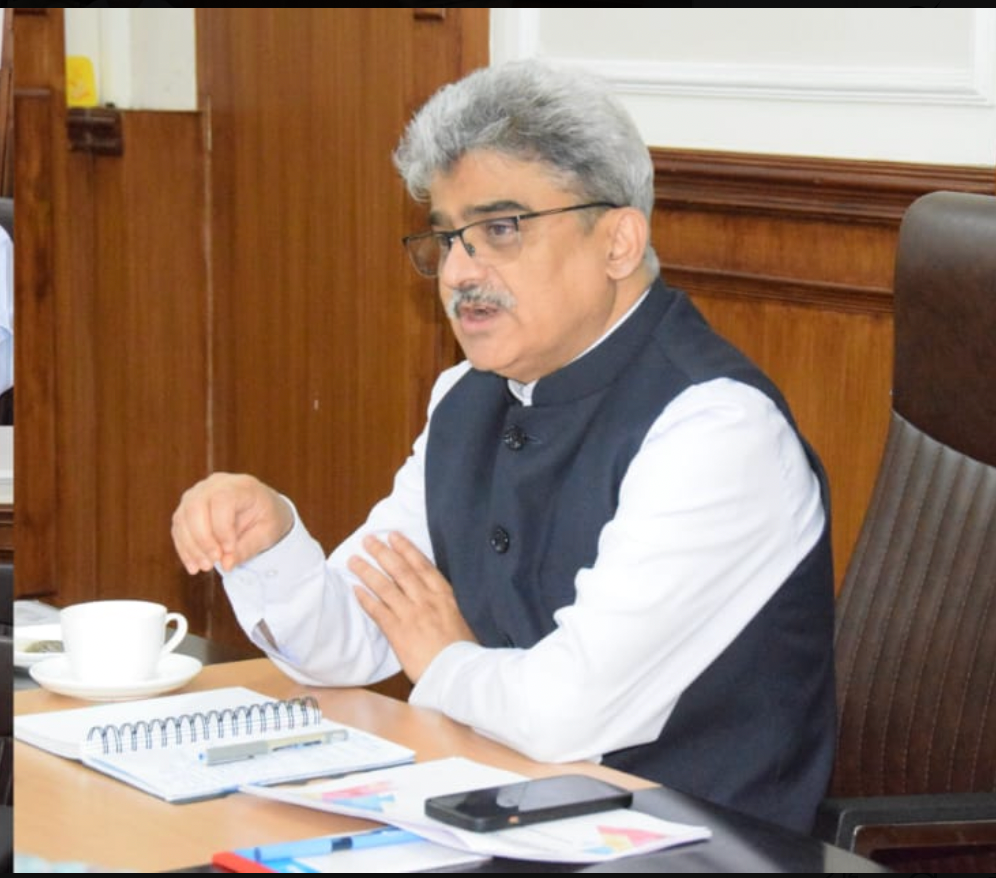Jammu, April 21, 2025 – Chief Secretary Atal Dulloo chaired a strategic meeting to redefine Jammu and Kashmir’s school education landscape, rolling out an ambitious plan to elevate academic standards and align with global benchmarks. Joined by Additional Chief Secretary Shantmanu, Directors of School Education for Jammu and Kashmir, MD Samagra Shiksha, and senior officials, Dulloo outlined a vision centered on technology, inclusivity, and skill development to implement the National Education Policy (NEP) 2020.
Dulloo emphasized integrating AI-based learning and real-time dashboards to track student progress and institutional performance, ensuring data-driven reforms. He urged officials to address stagnant enrollment in government primary schools, which lag behind private institutions despite higher numbers. “We must make our schools the preferred choice through quality education and modern facilities,” he stated.
The PM SHRI scheme is transforming 396 schools with cutting-edge infrastructure, including experiential learning setups. With ₹6.82 crore allocated for green initiatives and ₹3.15 crore disbursed as grants, these schools are poised to lead educational innovation. Dulloo directed officials to achieve full coverage of ICT labs and smart classrooms in higher secondary schools by 2025-26, alongside establishing 45 Atal Tinkering Labs, 159 STEM labs, and 188 Robotics labs to foster scientific curiosity.
Inclusive education remains a priority, with 89 Kasturba Gandhi Balika Vidyalayas (KGBVs) enrolling 5,012 girls from marginalized communities. Of 85 sanctioned girls’ hostels, 41 are operational, with 22 more nearing completion by August 2025. An additional 25 hostels are under construction to curb dropout rates and promote gender equity.
To prepare students for future careers, Dulloo championed vocational skilling, with 1,350 schools offering 15 trades to over 1.41 lakh students. Plans to extend vocational education to 550 more schools and set up 2,000 new vocational labs align with NEP 2020’s focus on employability and practical skills.
Technological governance is being strengthened through the JK Attendance App, used by over 1.14 lakh employees with geo-tagged facial recognition, and the smart attendance system, adopted by 74% of schools. The Vidya Samiksha Kendra in Jammu, inspired by Gujarat’s model, provides real-time educational insights, while the Parent Pulse Bot gathers parental feedback to enhance accountability.
Under Samagra Shiksha, infrastructure development is accelerating, with 4,691 of 8,902 approved civil works completed since 2018-19. In 2024-25, 980 projects worth ₹94.8 crore were finalized, delivering modern classrooms, sanitation facilities, and digital infrastructure to support innovative pedagogy.
Expressing concern over enrollment challenges, Dulloo called for urgent measures to improve public perception and educational quality. “Our goal is to create an inclusive, future-ready education system that empowers every child,” he affirmed.
J&K’s education sector is on the cusp of transformation, with Dulloo’s roadmap leveraging AI-driven learning, STEM education, and vocational training to set a national standard. As reforms take shape, the region is poised to deliver equitable, high-quality education for all.



